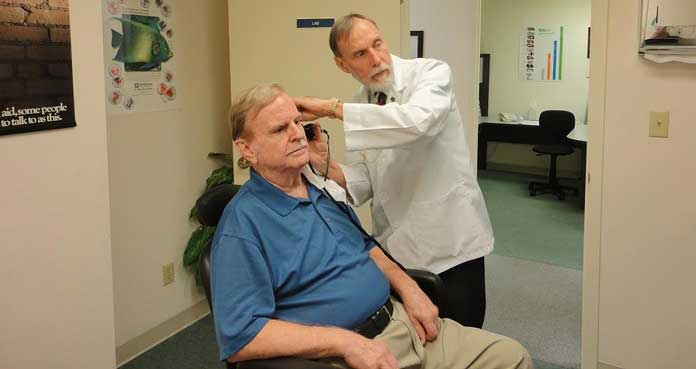
One of our clinicians is a dually certified Speech-Language Pathologist and Audiologist. HearSay has become known for testing of both auditory processing and language processing. By the end of the intake appointment and screening process, you will have a clear idea of which assessments to pursue, if any. This then aids in developing the roadmap needed in order to determine which assessments are most relevant which is both cost-effective and time-saving. Our intake and screening appointments offer the opportunity to delve into a wide range of areas that help tease out the elements that are contributing to the difficulties and challenges you and/or your child are experiencing. Take our online screener NOW to help differentiate difficulties.
AUDIOLOGIST FOR AUDITORY PROCESSING DISORDER IN ADULTS FULL
HearSay has several levels of testing from a basic screening test alongside an intake questionnaire, to a full formal evaluation with the option of providing a full comprehensive report with extensive recommendations and intervention strategies to address processing difficulties.Īt HearSay we are also able to differentiate disorders by way of our many screening tools which help distinguish Attention Deficit Disorder (ADD/ADHD) as compared to Auditory Processing Disorder (APD), Specific Learning Disorder (i.e., Dyslexia) and/or Language Processing Disorder. If you or your child are struggling with attention, focus, are a daydreamer, or miss instructions (at home, in the classroom, or in the workplace), struggle with reading and/or are exhausted after a day spent listening, an auditory processing test is warranted. This is not typically completed as part of a standard hearing test appointment. Psychoacoustic testing must be done in order to determine what the brain’s capacity is for actual listening and processing. Despite a normal hearing test with normal hearing thresholds, only the peripheral hearing (the structures of the ear) are tested using a conventional hearing test. Less than 2% of Audiologists do auditory processing testing world-wide. Research has since indicated that auditory processing disorders affect many parts of the brain. Previously referred to as Central Auditory Processing Disorder (CAPD) due to the thought that it affected the central part of the brain. Auditory training may include software-based programs designed to improve your or your child’s ability to understand sounds and to improve communication.Auditory Processing is described as what the brain does with what the ear hears.Ī breakdown in this process is called an auditory processing disorder. Intervention Programs and Auditory TrainingĬommunication and learning strategies, environmental modifications (for example, strategic seating or using an FM system to reduce background noise and listening fatigue), and auditory training tasks may be recommended for you or your child. Specialists in reading and psychoeducation can help you and your family better understand and cope with APD.Psychologists can address attention or hyperactivity concerns.Ear, nose, and throat (ENT) doctors, also called otolaryngologists, may explore concerns about hearing loss, middle ear fluid, or ear anatomy.

When appropriate, we’ll coordinate your care with other specialists throughout Duke.

We’ll also test listening skills (for example, listening when there is background noise, competing information, fast rates of speech, and more).Īfter testing, we’ll talk with you about the results, any auditory processing weaknesses we found, and recommendations for managing them.Īn audiologist will review areas of difficulties identified during testing and explain the potential impact on everyday communication in the workplace, classroom, or at home.

We will ask you to complete questionnaires and discuss your or your child’s medical history. Specific auditory processing tests will be chosen based on your child’s age and developmental level.įor adults, the APD evaluation is combined into one appointment for your convenience. The second appointment will be an APD evaluation with both an audiologist and a speech-language pathologist, who will evaluate expressive and receptive language and cognitive skills, problem-solving abilities, memory, and attention.The first appointment will be with a pediatric audiologist, who will administer a comprehensive hearing test to rule out hearing loss and middle ear dysfunction.For children, we schedule two separate appointments on separate days:


 0 kommentar(er)
0 kommentar(er)
